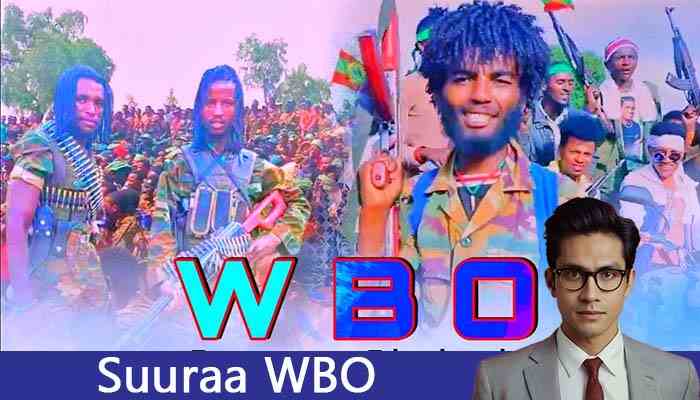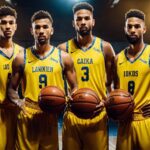Introduction to WBO and Its Context
The Oromo Liberation Army (WBO), also known as ABO-Shanee, is a militant group operating in Ethiopia’s Oromia region. While its activities are often shrouded in controversy, its digital presence—particularly through symbols like Suuraa WBO—has become a focal point of debate. The term, translating to “WBO Image,” encapsulates the group’s use of visual and cultural tools to shape public perception.
Also Check: Jal Maroo: The Life and Struggle of the Oromo Liberation Army Chief
Key Context: WBO’s Role in Ethiopia’s Political Landscape
WBO emerged as a faction of the Oromo Liberation Front (OLF), advocating for Oromo self-determination. Its tactics, including guerrilla warfare, have drawn criticism from the Ethiopian government, which labels it a terrorist organization. However, supporters frame it as a resistance movement against systemic marginalization.
Government-WBO Relations
Ethiopia’s federal government and Oromia’s regional administration have sought dialogue with WBO, though progress remains limited. In 2023, Oromia officials claimed progress in negotiations, stating: “Efforts to bring WBO into peace talks are ongoing, but trust-building remains a challenge.” Conversely, WBO leaders have dismissed such claims, asserting that “no genuine negotiations exist.”
Suuraa WBO: Symbolism and Cultural Mobilization
The term Suuraa WBO reflects the group’s strategic use of imagery, music, and digital media to amplify its message.
1. Music as a Propaganda Tool
WBO-aligned artists leverage traditional Oromo music to disseminate ideological themes. For example:
- Jaal Firoomsaa Ballaxaa’s “IRRAAN_GEENYE” (2022): A viral song on YouTube, often labeled “WBO Anthem” by supporters. Its lyrics blend nationalist rhetoric with calls for resistance.
- *“Suurraa Gindaaba” (2021): A track explicitly referencing WBO, paired with visuals of armed fighters. Hashtags like #galaanaagaaromsaa (Oromo liberation) accompany its online promotion.
2. Social Media and Misinformation
WBO’s digital footprint includes viral images and videos, some of which spread misinformation. For instance:
- Fake Ambassadors: In 2016, a doctored image of Obbo Leencoo Baatii, Ethiopia’s Saudi Arabia ambassador, was circulated with false claims of his defection to WBO.
- Deepfakes and Manipulated Content: Critics allege that WBO supporters use AI-generated videos or recycled footage to exaggerate military victories.
WBO’s Ties to Kenya and Regional Politics
WBO’s activities extend beyond Ethiopia, with alleged bases in Kenya’s border regions. Kenya’s Human Rights Commission has condemned WBO’s operations, citing human rights abuses. Meanwhile, Kenyan police have arrested suspects linked to WBO, accusing them of cross-border raids.
Peace Talks and Skepticism
Efforts to broker peace between WBO and the Ethiopian government face skepticism. While Oromia’s regional leaders claim progress, WBO’s leadership dismisses these as “propaganda.” Jireenyaa Guddataa, a WBO commander, stated: “Those who claim to negotiate with us are either impostors or seeking to divide our ranks.”
Cultural Impact and Legacy
WBO’s use of Suuraa WBO—from music to memes—has polarized public opinion. Supporters view it as a symbol of resistance, while critics see it as a tool for radicalization.
Case Study: “Galaanaa Gaaromsaa”
The pro-WBO slogan, meaning “Oromo Liberation Front,” appears in songs and graffiti. Its ubiquity highlights how cultural symbols are weaponized in political conflicts.
Conclusion: Navigating Truth in the Digital Age
The Suuraa WBO phenomenon underscores the challenges of verifying information in conflicts. While WBO’s imagery resonates with some Oromo communities, its spread often blurs fact and fiction.











